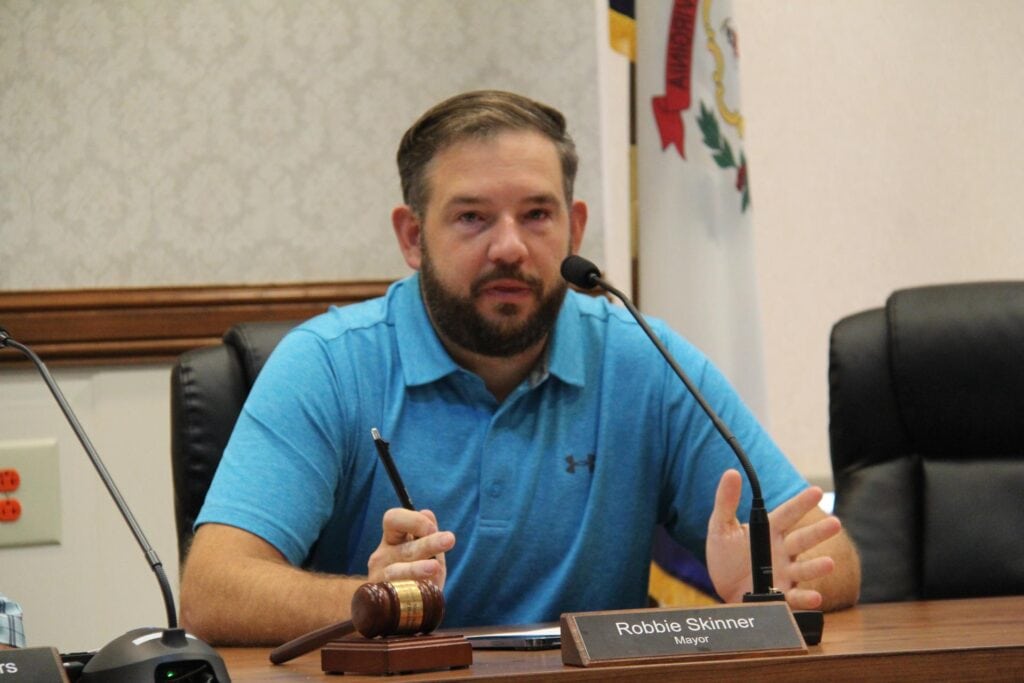BUCKHANNON – Since Dominion Energy suspended construction of the Atlantic Coast Pipeline in mid-December 2018, the number of employees currently working on the project in Upshur County has dipped by 600 – from approximately 700 to just 100.
Samantha Norris, spokesperson with Dominion Energy, which owns and operates the pipeline, said Friday the effects of a Dec. 13, 2018 federal court ruling have been devastating for working people employed by Dominion, its partners, contractors and subcontractors.
The economy in Upshur County has likewise been detrimentally impacted by Dominion’s voluntary suspension of work on the 600-mile-long, 42-inch-wide natural gas pipeline, which traverses West Virginia, Virginia and North Carolina, she said.
And although the extent to which local businesses have been hit by the suspension seems to have varied, all the businesses My Buckhannon talked with said they’d noticed at least some impact – even if it was minimal.
In the Dec. 13 ruling, the U.S. Court of Appeals for the Fourth Circuit temporarily stayed – or invalidated – permits issued by the U.S. Fish and Wildlife Service related to the “incidental take” – or possible harm or damage – to endangered and threatened wildlife species and their habitats during completion of the infrastructure project. Norris said the court took issue with the USFWS’s Incidental Take Statement and Biological Opinion.
“In response to rulings by the Fourth Circuit, the Atlantic Coast Pipeline and the Supply Header Project were forced in late December to lay off or delay hiring more than 4,500 skilled construction workers in Pennsylvania, West Virginia, Virginia and North Carolina,” she wrote in an email.
Prior to the ruling, Norris said construction was underway on about 300 of the total 600 miles, with about 2,000 workers employed and stationed in West Virginia and 700 in Upshur County alone.
“When the rulings were announced, the Upshur County numbers diminished to a little over 100,” Norris said, noting the hundred is comprised primarily of environmental control workers, safety supervisors and some administrative support staff.
Both ACP workers and the local economy are suffering, Norris said.
“It is jeopardizing the livelihood of countless businesses along the ACP route,” she wrote. “Restaurants, vehicle mechanics, laundry services, convenience stores and hotels were seeing great success from this major business boom. Now, ACP workers are left without a paycheck to spend in local communities and small businesses are feeling the impact.”
Recently elected House of Delegates member Robbie Martin, R-45, owns the Bicentennial Inn and 88 Restaurant & Lounge. He says business – especially in the hotel – has decreased “significantly” since ACP suspended construction.
“I went from 98 percent capacity to about 5 percent capacity,” Martin said Monday. “It’s extreme. My hotel is not making money right now. With the pipeline guys in town, it was making great money, but with [the majority of them] not here, it’s crazy how much of a difference it’s made, especially this time of year.”
Martin says unless things change course with the pipeline, he doesn’t expect to see an uptick in business until April.
“There’s been some decrease in my restaurant and in the gambling room, but the hotel is where you see the biggest difference,” he remarked. “You were talking 95 percent occupancy for months almost every day. Now, it’s like nothing. On the weekends, I might see seven or eight rooms, about 5 percent occupancy.”
Candice Jones, general manager of the Buckhannon Hampton Inn said she, too, has observed a notable difference in occupancy since December’s end.
“I definitely know a lot of people who were in-house left by the end of December, and occupancy is definitely down,” Jones said Monday. “It’s usually pretty slow this time of year, but we were expecting to be a little more full because of the pipeline.”
Jones said although the exodus of pipeline workers is affecting the hotel’s occupancy forecasting for this year, she doesn’t expect it to have long-term consequences.
“Typically, this is a slower season anyways,” she said. “I don’t think it’s going to mess with our historical data, but it’s kind of affected what we were forecasting for this year.”
Baxa Hotel-Motel owner Jerry Henderson said many of her inside hotel rooms are under renovation, so they’re not available for rental currently; however, some of the other rental properties that she owns around town are still occupied by pipeliners who hope to return to work within the next couple months.
“Our pipeliners have continued renting some of my other properties around town because they anticipate to come back to work in March or April,” Henderson said.
Katie De La Vega, co-owner of The Social Bar and Grille, said she’s noticed “somewhat” of a difference since work on the pipeline was halted.
“The supervisors or bosses – they’re the ones that have been our regulars, and they’re still here, and so we still see them,” she said. “There’s a few guys that had come in fairly regularly that aren’t in here anymore, but overall, it hasn’t made too much of a difference for us.”
So, what’s next for ACP?
Norris said on Jan, 10, the Federal Energy Regulatory Commission approved Dominion’s stabilization plan for active construction sites, which means workers were permitted to complete tasks such as backfilling open trenches, installing already-welded pipe and completing underground road crossings already in progress. It’s crucial the work be completed to protect the environment and preserve public safety, she said.
“It is important that we stabilize construction sites in these areas to protect nearby streams and rivers and the safety of the surrounding community,” Norris said. “We will begin stabilization work in limited areas of West Virginia and North Carolina in the coming days and expect to complete the work by March. This will temporarily bring back some workers, with approximately 750 located in West Virginia over the next few weeks. In the meantime, we await a response from the Fourth Circuit on our motion to narrow the scope of its stay.”
Norris is referring to the motion Dominion Energy has filed for emergency clarification on the scope of the federal appeals court’s decision, she explained, saying the company believes federal appeals court’s ruling was “overly broad.”
“The court stayed the U.S. Fish & Wildlife Service Biological Opinion and Incidental Take Statement in their entirety, while the issues in this case involve a much narrower scope of the project – only four species and roughly 100 miles in West Virginia and Virginia,” Norris said. “We have filed a motion for emergency clarification on the scope of the court’s decision. Once we hear back from this request for clarification, we will have a better idea on schedule.
“We are confident we will ultimately prevail in the courts and resume construction,” she added, “but that will not undo the damage already done to these working families,” she added.












